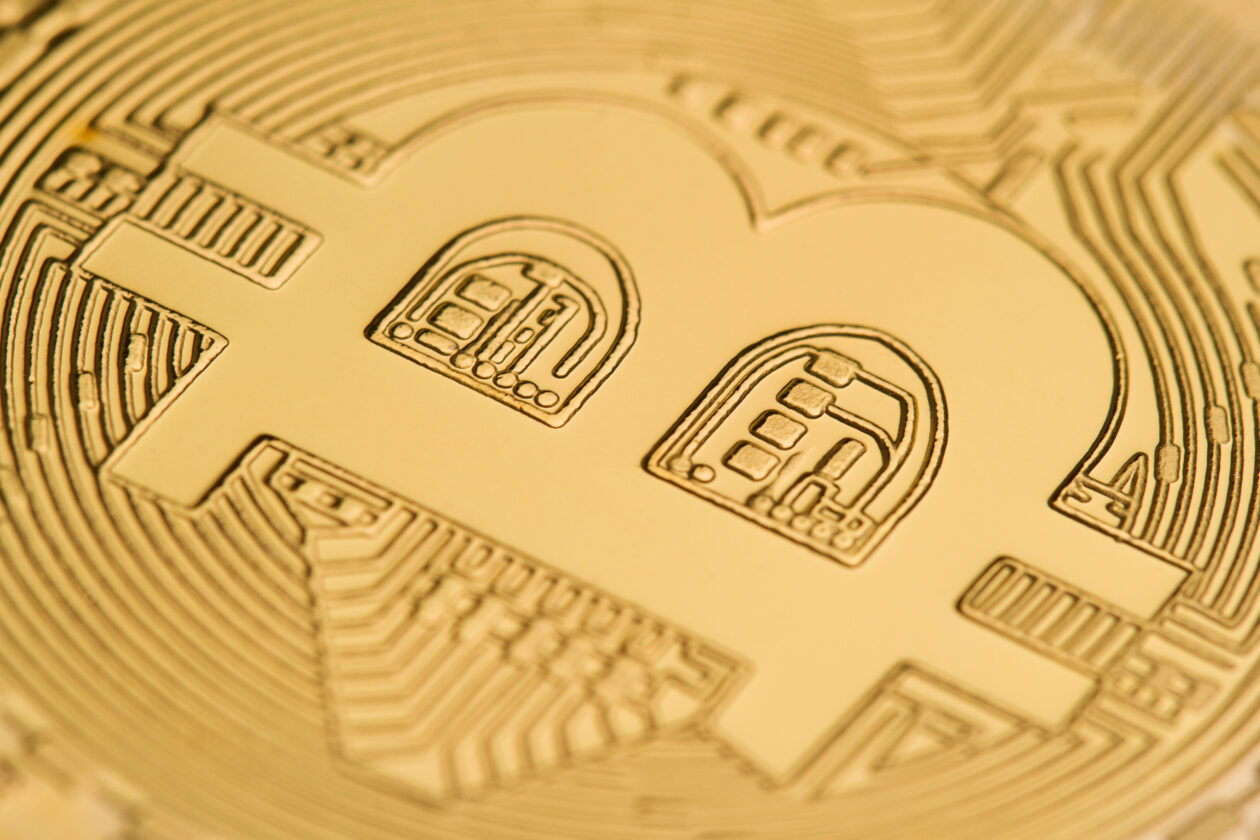It was a morning of gains in Asia. That followed Tuesday’s favorable U.S. court ruling for Grayscale Investments in its Bitcoin ETF case against the U.S. Securities and Exchange Commission (SEC). Bitcoin, Ether and all other top 10 non-stablecoin cryptocurrencies rose, while Toncoin recorded double-digit growth. The Forkast 500 NFT Index fell as traders processed the latest SEC charges brought against the crypto industry for securities violations — this time against an NFT project operated by media company Impact Theory. U.S. equity futures traded flat after Tuesday’s gains. Investors now await the release of key economic data later in the week.
Grayscale bounce
Bitcoin gained 6.09% for the last 24 hours to US$27,625.04 as of 06:45 a.m. in Hong Kong. The token is up 7.02% for the week, according to CoinMarketCap data. The world’s leading cryptocurrency had been trading under the US$27,000 mark since Aug. 18 as downbeat macroeconomic developments in the U.S. and China took a toll on the wider crypto market.
Ether also posted gains. It rose 4.92% to US$1,731.09 for a 6.87% weekly gain.
All other top 10 non-stablecoin cryptocurrencies were in green as the market reacted to news of a victory for Grayscale Investments in its ongoing legal dispute with the U.S. Securities and Exchange Commission.
On Tuesday, the District of Columbia Court of Appeals overturned the SEC’s earlier refusal to allow the company’s Grayscale Bitcoin Trust, known by its ticker GBTC, to become an exchange-traded fund (ETF).
“Despite the inevitable SEC appeal, to our mind there is no doubt now, spot BTC ETFs are coming to the U.S.,” said Tim Bevan, chief executive officer at crypto investment firm ETC Group, in an emailed statement. Bevan predicted that a bulk approval of applications from other major financial institutions — including BlackRock, Fidelity and WisdomTree — is now in the cards for the first quarter of fiscal 2024.
Grayscale first sued the SEC in June, 2022. The Stamford-based digital asset manager said that the regulator failed to provide clear explanations for the rejection of its ETF application, violating the Administrative Procedure Act. The company added that the SEC’s refusal was inconsistent with its approach to other Bitcoin futures ETF applications.
“The level of pent up institutional and retail demand in the U.S. is significant and we expect this to have a positive impact on the price of Bitcoin as can be seen from today’s price reaction,” wrote Bevans. The positive impact will be felt beyond price, he added.
“The broader signal this sends to the market is one of legitimacy, which is hugely relevant in terms of institutional adoption and other global jurisdictions following suit,” Bevans said.
Among the top 10, Toncoin, the native token of proof-of-stake blockchain TON, led the leaders. It surged 14.24% in the last 24 hours to $1.72 and a weekly gain of 27.20%.
The Telegram messaging application introduced the TON blockchain in 2018. Telegram then severed ties with the project in 2020 due to increasing regulatory pressure from the SEC. The blockchain said it has seen a 102% increase in developer involvement within the last year. Telegram also launched its Wallet Pay service, which allows users to pay merchants directly on the app using crypto, in July. The service supports Bitcoin, Tether stablecoin and Toncoin payments.
The total crypto market capitalization rose 4.73% to US$1.1 trillion, while trading volume surged 116.20% to US$52.34 billion.
NFTs suffering from SEC securities label
The main Forkast 500 NFT index fell 1.96% over the past 24 hours to 2,191.84 as of 9:30 a.m. in Hong Kong, down 4.64% for the week. Forkast’s Ethereum and Polygon indexes moved down, while the Solana and Cardano index rose.
The SEC announced Monday it has charged Los Angeles-based media company Impact Theory with offering and selling its “Founder’s Keys” NFTs as unregistered securities. It is the first time the regulator has brought charges against an NFT project.
Two SEC commissioners, Hester Peirce and Mark Uyeda, published an open letter disagreeing with the decision. They said that Impact Theory’s NFTs did not meet the Howey test to qualify as an investment contract.
The Howey test has been applied in numerous cases to determine whether various financial arrangements and offerings constitute financial securities. It raises four elements of an investment contract — 1) an investment of money in 2) a common enterprise with 3) expectations of profits derived from 4) the effort of others.
“Even if the NFT sales here fit squarely within Howey, is this set of facts one that warrants an enforcement action?” the statement said.
“The handful of company and purchaser statements cited by the order are not the kinds of promises that form an investment contract. We do not routinely bring enforcement actions against people that sell watches, paintings, or collectibles along with vague promises to build the brand and thus increase the resale value of those tangible items,” the statement continued.
Impact Theory co-founder Tom Bilyeu tweeted Tuesday to confirm that the company has settled with the SEC by agreeing to pay a US$6 million penalty.
Forkast Labs’s NFT strategist Yehudah Petscher said that the SEC will now likely sue other NFT projects for securities violations. This will lead to further pain for investors as the market bottoms out, he added.
“Traders are about to get wrecked,” Petscher said.
Meanwhile, the total NFT trading volume rose 8.95% in the past 24 hours to US$10.95 million. Volume on the Ethereum, Solana and ImmutableX chains gained, while Mythos and Polygon logged losses, according to data from CryptoSlam.
Weak US jobs data has traders hopeful for a pause

U.S. stock futures moved up as of 12:10 p.m. in Hong Kong. That followed significant gains for all three major indexes Tuesday, with the Nasdaq adding 2.15% by the close of regular trading.
The main Asia stock indexes in China, Hong Kong, Japan and South Korea all rose for the third consecutive session. Japan’s Nikkei led the gains with a 0.84% rise.
The U.S. saw the Labor Statistics Bureau’s Job Openings and Labor Turnover Survey (JOLTS) for July fall to 8.82 million. The figure, the lowest monthly level in 2.5 years, shows a gradual slowing of the labor market.
“With reports like this, the Fed can most likely keep rates unchanged in September,” Jeffrey Roach, chief economist at North Carolina-based LPL Financial, told Reuters.
The Fed last raised its interest rate to between 5.25% and 5.50% in July, the highest level in 22 years. The CME FedWatch Tool predicts a 13.5% chance for a 25-basis-point rate hike at the Fed’s next meeting in September, down 8% from 21.5% on Tuesday.
Investors now await Q2 gross domestic product figures later on Wednesday, the personal consumption expenditure (PCE) price index on Thursday and the monthly jobs report on Friday.
The potential pause in U.S. interest rate hikes has encouraged investor sentiment in Asia, already buoyed by Chinese government attempts to revive the local capital market. Earlier this week, reports emerged that Beijing has cut the stamp duty on stock trading by half and limited initial public offerings.
Analysts told Reuters that the IPO decision in particular may not work out as planned.
“Slowing the pace of IPOs will have little impact on the equity markets but will further dampen access to capital for the private sector at a time when the economy sorely needs a boost,” Orient Capital Research Managing Director Andrew Collier said.
(Updates to add equities section)






